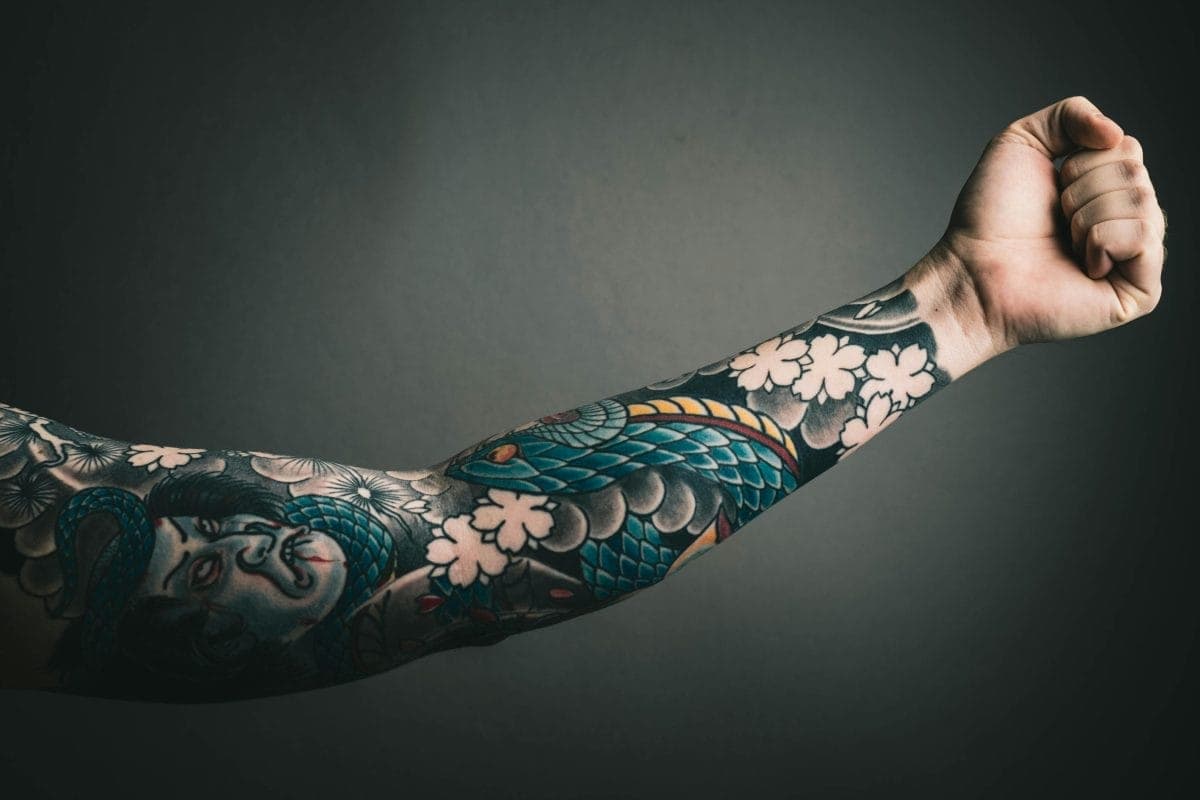Skincare
Proper Skin Care for New Tattoos
If you click on links we provide, we may receive compensation.
A new tattoo is not only a form of art but also a wound that requires appropriate care to heal properly. When you get a tattoo, the needle pierces your skin repeatedly, creating a series of puncture wounds where the tattoo ink resides. Proper aftercare is crucial because it prevents infection, ensures the quality and longevity of the tattoo, and speeds up the healing process.
Initial Care Post-Tattoo
Immediately after getting a tattoo, the artist will clean the area and apply a thin layer of petroleum jelly or a similar product over the tattoo. They will then cover the area with a bandage or plastic wrap. This covering helps prevent bacteria from entering the wound and reduces the risk of infection. It’s generally recommended to keep the tattoo covered for the first few hours, after which it’s important to gently wash the area with lukewarm water and fragrance-free soap.
After cleaning, it’s essential to apply a thin layer of a healing ointment or lotion that is free of irritants. Products specifically designed for tattoo aftercare are preferable because they contain skincare ingredients that support the healing process. Avoid using thick creams or lotions that can suffocate the tattoo and hinder the healing process.
Importance of Moisturizing
Keeping the tattoo moisturized is key to the healing process. A well-moisturized tattoo will heal evenly and retain its vibrant colors. It’s important to apply a small amount of moisturizer several times a day. This helps the skin heal faster and reduces the amount of scabbing and flaking of the skin. Moisturizers that contain cocoa butter, shea butter, or other natural ingredients are often recommended because they are gentle on sensitive skin and less likely to cause irritation.
However, excessive moisturization can be detrimental. It can lead to clogged pores and breakouts on the skin. This is why it’s important to use only a small amount and ensure that the skin is not overly saturated with product. The skin should be able to breathe to promote optimal healing.
The Sun and Your New Tattoo
Sun exposure can be particularly damaging to new tattoos. Ultraviolet (UV) rays can fade tattoo ink and prolong the healing process. During the first few weeks, it is advisable to keep the tattoo out of direct sunlight. If you need to go outdoors, wearing protective clothing over the tattoo or using a broad-spectrum sunscreen specifically designed for tattoos can help protect the area. The sunscreen should be at least SPF 30 and should be applied regularly if you are spending time in the sun.
Once the tattoo is fully healed, continuing to protect it from the sun will help maintain its vibrancy. According to a study by the Skin Cancer Foundation, UV radiation can significantly degrade tattoo ink over time if not properly protected.




Signs of Healing and Potential Issues
A new tattoo typically takes about two to three weeks to heal on the surface and up to six months for the deeper layers of skin to fully heal. During the first few days, it’s normal for the tattoo to weep a clear or slightly colored fluid. This is part of the healing process. The area may also become red and slightly swollen, which should subside over a few days.
It’s important to monitor the tattoo for signs of infection, which can include excessive redness, swelling, warmth, or a pus-like discharge. If you experience severe pain or any signs of infection, it’s crucial to seek medical attention immediately. An untreated infection can lead to serious health issues and may damage the tattoo.
Long-Term Care
Even after the tattoo has healed, ongoing care is important to maintain its appearance. Keeping the skin hydrated and continuing to protect the tattoo from UV rays are both crucial steps. It’s also advisable to keep the tattooed skin clean and to exfoliate gently to prevent the accumulation of dead skin cells that can make the tattoo look dull.
Regular touch-ups by a professional tattoo artist can help maintain the clarity and vibrancy of your tattoo as it ages. Over time, some fading and spreading of the ink is natural, but good skin care can significantly slow this process and keep your tattoo looking its best for years to come.
By following these simple steps, you can ensure that your new tattoo heals properly and remains a vibrant and meaningful piece of body art. Remember, a tattoo is not just a design on your skin but an investment that requires ongoing care to maintain its beauty and significance.




